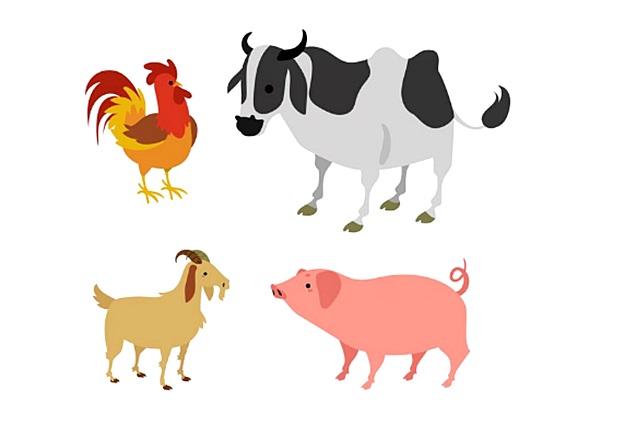1271

The protection of animal welfare is essential for Europeans, as indicated by the results of a Eurobarometer survey published by the European Commission. The Commission has been working to improve animal welfare for over 40 years, progressively enhancing the lives of animals and adopting welfare standards in legislation that rank among the highest in the world. This survey highlights the importance of this issue for EU citizens.
Animal welfare must be safeguarded
The vast majority of Europeans (84%) believe that the welfare of farm animals should be better protected in their country than it is currently. A similar number (83%) supports limiting the transport time of animals. Almost three-quarters of respondents (74%) advocate for better protection of the welfare of pets in their country.
Over 90% of Europeans believe that agricultural and breeding practices should meet basic ethical requirements. These include providing animals with sufficient space, food, and water, creating environments tailored to their needs (mud, straw, etc.), and ensuring proper handling. The survey also showed a high level of concern for the welfare of animals in slaughterhouses.
Three-quarters of respondents considered the practice of killing male chicks after birth unacceptable, while an overwhelming majority favored the prohibition of cutting certain parts of animals' bodies (tails, ears, beaks, etc.) if not strictly necessary and with anesthesia.
Regarding fur farming, over half of those surveyed (57%) believe it should be strictly prohibited in the EU, while almost a third (32%) think it should be maintained only under improved welfare conditions.
Concerning food imports from countries outside the EU, over eight in ten Europeans (84%) believe that the current situation of animal welfare should change, either by applying EU rules on animal welfare to food imports or by labeling foods according to applied standards.
Despite interviews conducted in March 2023, when food prices were already very high due to inflation, 60% of respondents indicated they would be willing to pay more for products from animal-friendly farming systems. Approximately a quarter (26%) would be willing to pay up to 5% more for animal-friendly foods.
Farm to Fork Strategy
The special Eurobarometer (533) was conducted between March 2 and March 26, 2023. A total of 26,376 respondents were interviewed from all 27 EU member states and various social and demographic groups. The methodology used involved face-to-face interviews in people's homes or at their doors, in the national language, except in Malta, the Czech Republic, Denmark, and Finland, where some interviews were conducted using computer-assisted video interviews.
The Farm to Fork Strategy, central to the European Green Deal, aims to make food systems fair, healthy, and environmentally friendly. Improving EU standards for animal welfare is an important part of this strategy.
The Commission has worked intensively on a revision of EU legislation on animal welfare, taking into account the needs of all stakeholders in the supply chain. The proposal for the protection of animals during transport, one of the four stages of legislation, is the most advanced and will be presented in December 2023.
In 2021, the Commission responded positively to the European Citizens' Initiative "End the Cage Age." This initiative called for the prohibition of the use of cages for the intensive rearing of multiple animal species.
"Europe has proudly supported some of the highest animal welfare standards in the world for over 40 years, and this activity remains a priority for us. Good animal welfare means better animal health and higher-quality food.
That is why we are working to improve EU standards for animal welfare, in line with the latest scientific evidence and in a way that works for farmers and the zootechnical sector.
We will continue to advocate for the highest possible standards—both in the EU and internationally—ensuring at the same time that no one is left behind," said Stella Kyriakides, Commissioner for Health and Food Safety.





